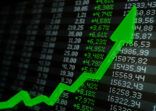Foreign-driven market
Investors are concerned that the local stock market is mostly driven by foreign investors.
According to Henderson’s Duhra, an issue is the foreign capital outflows from Philippine equities. Since mid-2016 to date, there has been around $1bn of outflows from the market, which is a huge amount for the country, he said.
“When rates go up in the US, then you tend to see money coming out from markets such as the Philippines.”
First Metro’s Cosio agrees that foreign capital domination of the market is worrisome.
“Because foreigners were selling, the locals stopped buying. Locals figured,`Why buy, just wait until these guys have sold almost everything.’”
But both Duhra and Cosio believe that the bulk of the foreign outflows have already peaked and expect a slowdown.
Nonethless, the market remains volatile.
Last year, for example, the Philippine Stock Exchange Index peaked at just above 8,000 in August. However, that fell to 6,500 in the middle of December.
“The increase to above 8,000 is some kind of exuberance, and then the decline to 6,800 is too much [investor] fear and anxiety,” Cosio said.
Year-to-date, he believes that people have become risk averse. The market has recovered from December and has stayed between the 7,200 and 7,400 levels.
Philippine Stock Exchange Index

Source: Bloomberg
Nevertheless, Cosio remains positive. Local investors will eventually take over the share of stock the stock market, which will make the market more stable.
Around 49% of participation come from foreign investors, which is much smaller than the 90% ownership during the 1990s, he said.
Political risk?
In the Philippines and globally, there has been much talk about the new administration, particularly about President Duterte, his war on drugs and and how he is sometimes likened to US President Trump.
“People say that [the risks in investing in the Philippines] are political. But in my informal talks with a number of businessmen, both in the corporate and small- and medium levels, they say they have confidence in President Duterte,” Cosio said.
He said that it’s like the case in the US, where some investors believe that President Trump is an investment risk, but there is actually business confidence.
He added that the president himself said that he is leaving most of the economic matters to his economic team.
“Even if you look at his own pronouncements, he has said very little about the economy, which means he is really depending on his economic team to do the execution,” he said.
















